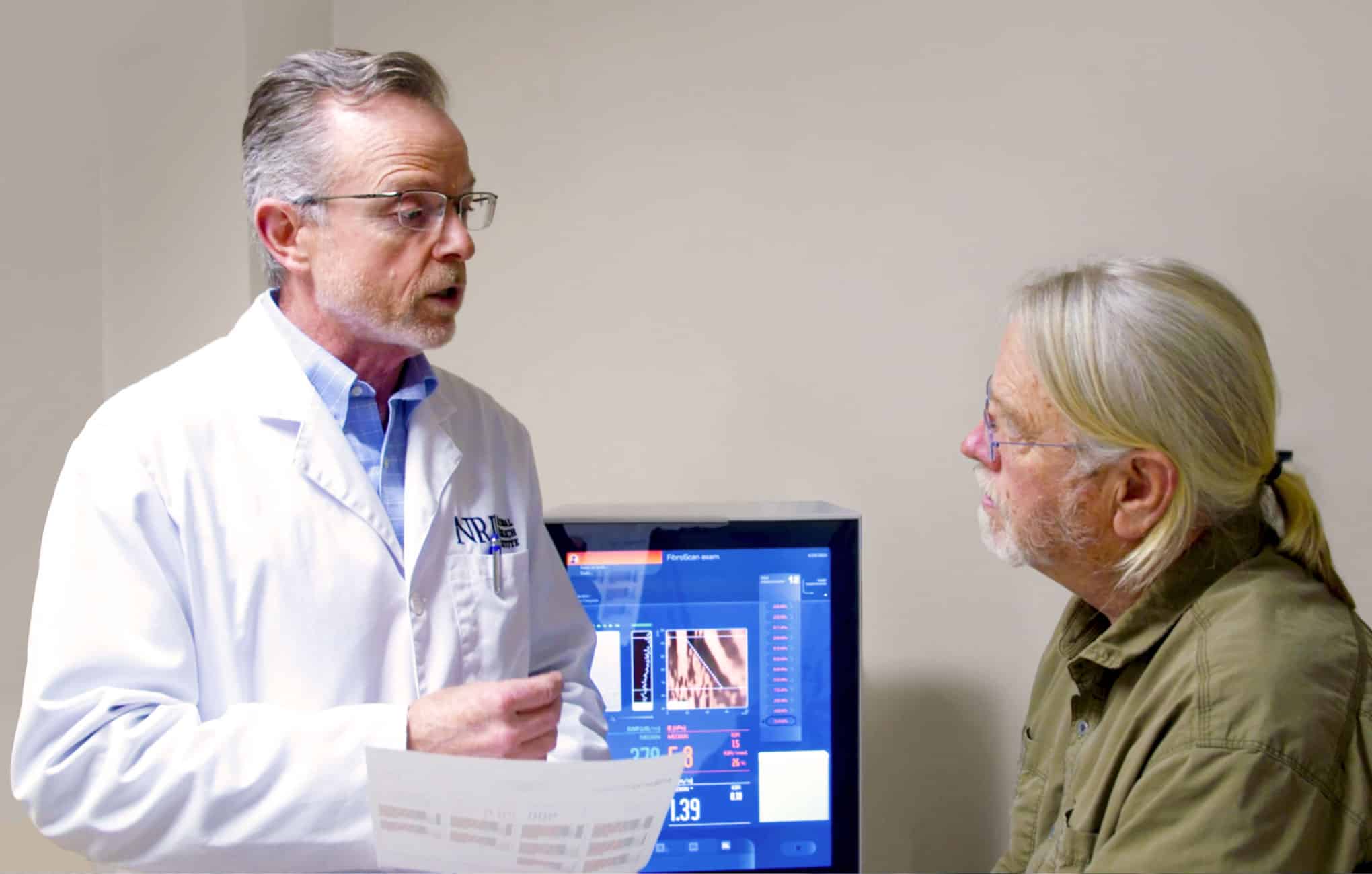Nearly 80 million people in the United States are living with MASLD, and about 1 in 5 are expected to develop MASH.1
Metabolic dysfunction-associated steatohepatits (MASH) is a severe chronic form of metabolic dysfunction-associated steatoic liver disease (MASLD) that is often progressive and may be life threatening. It is caused by a buildup of excess fat in the liver, resulting in cell stress that may cause liver inflammation and scarring (fibrosis). MASH progression can cause severe liver scarring (cirrhosis) and increase the risk of liver cancer, liver failure, and death.
People with early stages of MASH and mild liver scarring may or may not experience symptoms. Symptoms of MASH may include abdominal pain, fatigue, memory loss or confusion, swelling of the abdomen and legs, bleeding, itchiness, and jaundice, depending on disease severity and degree of progression to cirrhosis. Early interventions for MASH include lifestyle changes, such as adjustments to diet and exercise habits, but these changes may not be enough to help many people living with the disease.
Talk to your doctor if you are concerned that you or a loved one may have MASH.
To learn more about MASH and MASLD, visit these resources:
Clinical Trial Overview
Akero is advancing efruxifermin (EFX) as an investigational drug for the treatment of MASH. EFX is designed to mimic the biology of a naturally occurring hormone involved in metabolic regulation and is supported by a comprehensive suite of preclinical and clinical data. We currently are studying EFX in our Phase 3 SYNCHRONY program, a set of three randomized, placebo-controlled clinical trials:

Evaluating EFX for the treatment of patients with biopsy-confirmed pre-cirrhotic (F2-F3) MASH

Evaluating EFX for the treatment of patients with noninvasively diagnosed MASH or MASLD (F1-F4, compensated)

Evaluating EFX for the treatment of patients with compensated cirrhosis (F4, compensated) due to MASH
Talk to your doctor to learn whether you or a loved one may be eligible to receive EFX through one of Akero’s SYNCHRONY trials.
Expanded Access Policy
We currently are focused on developing efruxifermin (EFX) for the treatment of metabolic dysfunction-associated steatohepatitis (MASH), which requires rigorous evaluation of the safety and efficacy of EFX in clinical trials. If these trials provide substantial evidence that EFX is safe and effective for treatment of MASH, we will seek marketing approvals from regulatory health authorities to make EFX available to patients.
We recognize that there may be situations where a patient with a serious or life-threatening condition will not qualify for an Akero-sponsored clinical trial and may seek access to an investigational medicine outside of a clinical-trial setting. This process is known as expanded access,2 or compassionate use.3 We are not planning to make EFX available on an expanded access basis at this time. Nonetheless, we will evaluate and respond to expanded access requests on a case-by-case basis, consistent with the policy set forth below.
- Contact Information. If you have any questions about Akero’s expanded access policy or wish to make an expanded access request, please contact [email protected].
- Request Procedures. An expanded access request must provide sufficient supporting detail to enable us to evaluate your request. Please also include your contact information so that we may follow up with you directly.
- General Criteria. Although Akero retains sole discretion in deciding whether to grant an expanded access request, the following criteria will guide evaluation of requests:
- The condition or disease being studied is serious or life-threatening and there are no available alternative treatments;
- The patient is not eligible for an ongoing or planned Akero-sponsored clinical trial;
- There must be sufficient clinical data to identify an appropriate dose for the proposed use;
- The potential benefit to the patient clearly outweighs the collective potential risks;
- There must be adequate supply of the investigational product to meet the needs of the expanded access program without impacting the company’s clinical trials;
- The patient meets any other relevant medical criteria for expanded access to the investigational product, as determined by Akero.
- Anticipated Timing. We anticipate acknowledging receipt of any expanded access questions or requests within 10 business days of receipt.
As authorized by the 21st Century Cures Act, Akero may revise this expanded access policy at any time. Additionally, the posting of this policy by Akero Therapeutics shall not serve as a guarantee of access to any specific investigational drug by any individual patient.
References
- Browning JD, Szczepaniak LS, Dobbins R, et al. Prevalence of hepatic steatosis in an urban population in the United States: impact of ethnicity. Hepatology. 2004;40(6):1387-1395.
- Food and Drug Administration, Department of Health and Human Services. Code of Federal Regulations. 21 CFR 312.305. Accessed March 13, 2025. https://www.ecfr.gov/current/title-21/part-312/section-312.305
- European Medicines Agency. Guideline on compassionate use of medicinal products, pursuant to article 83 of regulation (EC) no 726/2004. Published July 19, 2007. https://www.ema.europa.eu/en/documents/regulatory-procedural-guideline/guideline-compassionate-use-medicinal-products-pursuant-article-83-regulation-ec-no-7262004_en.pdf

